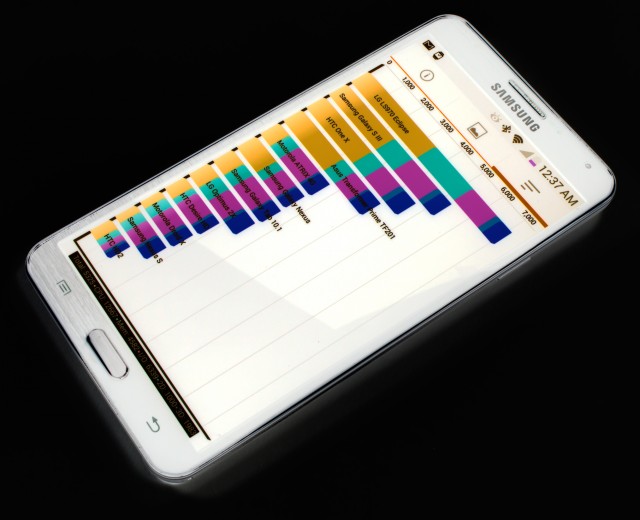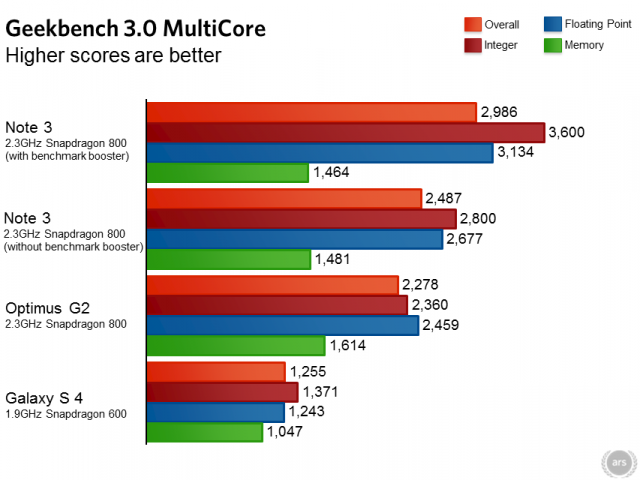
Samsung Cheats Again By Artificially Boosting Note 3’s Benchmark Scores

Back in July, Samsung was caught manipulating the Galaxy S4 to obtain repeatedly high results on certain benchmark tests and now, the Korean company appears to be artificially boosting the Galaxy Note 3’s benchmark scores with a special, high-power CPU mode that kicks in only when the device runs popular benchmarking apps, according to ArsTechnica. Apple’s marketing chief Phil Schiller also highlighted the report in a tweet earlier today, calling them “shenanigans “.
shenanigans http://t.co/30FoQDfNw0
— Philip Schiller (@pschiller) October 1, 2013
Ars notes that a quick comparison of Galaxy Note 3’s scores to the similarly-specced LG G2 made it clear to them that something fishy was going on. It seems when the Note 3 is idling, three of the four cores shut off to conserve power; the remaining core drops down to a low-power 300MHz mode. However, when any popular CPU benchmarking app is loaded, the Note 3 CPU locks into 2.3GHz mode, the fastest speed possible, and none of the cores ever shut off. Benchmarks exist to measure the performance of a phone during normal usage, and a device should never treat a benchmark app differently than a normal one.

To further prove Samsung’s dishonesty, here’s what they did to trick the phone into not entering a special “benchmark mode” during a benchmark:
“A bit of testing showed that the device’s boosted benchmark mode is triggered by the package names of the most popular benchmarking apps—loading Geekbench, for example, starts this mode. So we slapped together “Stealthbench,” a renamed version of Geekbench 3. By disassembling the benchmarking app, changing only the package name, and reassembling it, we could run the app without the CPU knowing we were running a benchmark app. The Note 3 should treat our benchmark like any other app and give a true representation of the phone’s performance relative to other devices.
Above is a picture of Geekbench and of Stealthbench, which is identical to Geekbench in every way except for a different package name. With Geekbench, System Monitor shows the CPU is locked into 2.3 GHz mode and all cores are active, but in Stealthbench, the CPU is allowed to idle, shut off cores, and switch power modes, the same way it does in any other app. We have successfully disabled the special benchmark mode.
The difference is remarkable. In Geekbench’s multicore test, the Note 3’s benchmark mode gives the device a 20 percent boost over its “natural” score. With the benchmark boosting logic stripped away, the Note 3 drops down to LG G2 levels, which is where we initially expected the score to be given the identical SoCs.“
Funny thing is, even with the benchmark booster disabled, the Note 3 comes out faster than the LG Optimus G2 in this test. Who knows what Samsung really intended by artificially boosting the benchmarks on its latest phablet, something that wasn’t even necessary in the first place.
What do you think?

